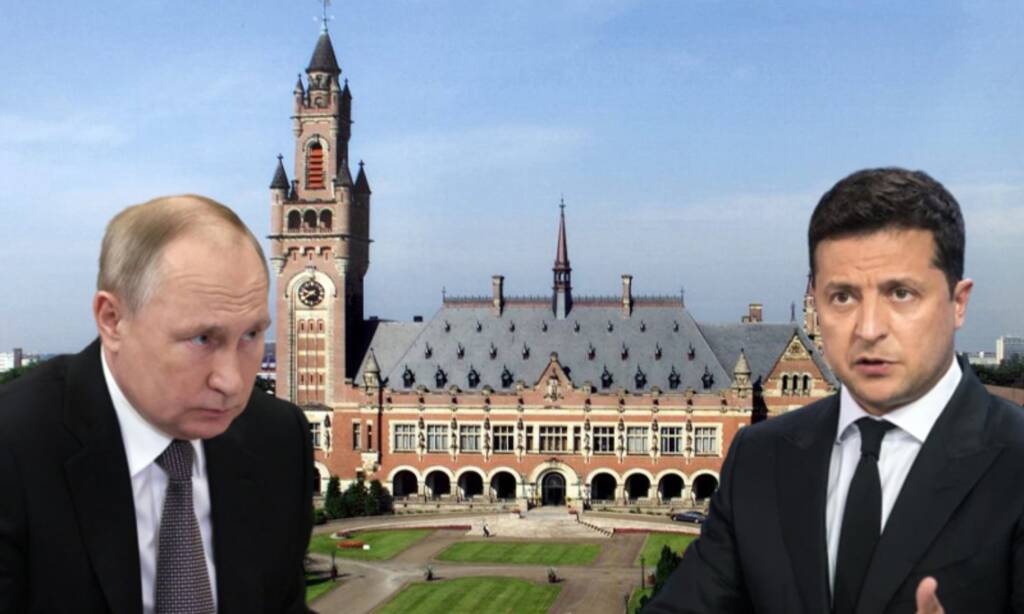On the final day of January, the International Court of Justice (ICJ) delivered its verdict on a lawsuit filed by Ukraine in 2017, which accused Russia of a range of “terrorism” offenses under international law. This included allegations of support, sponsorship, and direct involvement in “terrorism” activities in the Donbas region, alongside accusations of racial discrimination against ethnic Ukrainians and Tatars in Crimea, dating back to 2014. Out of the various charges, the Court sided with Moscow in nearly all aspects, except for two specific instances, though these exceptions also raised eyebrows regarding their substantiation.
The decision was of monumental importance and unveiled several critical findings, igniting intense debate. It questioned the narrative upheld by the Ukrainian government about the situation in Crimea and Donbas over the last ten years—a narrative echoed and amplified by Western media, foreign policy experts, and government officials alike. Furthermore, it cast doubt on the actions taken by Kiev during its “anti-terrorist operation” initiated in April 2014 against what were described as “pro-Russian separatists.”
Join us on Telegram: https://t.me/tfiglobal
Despite the war’s evident toll and the bleak outlook for Ukraine’s military position, as reported by mainstream media, the ICJ’s revelations received scant attention. This silence can be attributed to the complicity of Western governments and media in the ongoing conflict in Donbas, particularly their support for Ukrainian forces and associated paramilitary groups trained by the UK and the US.
The charges brought by Ukraine in 2017, especially regarding the alleged discrimination against the Crimean Tatar and Ukrainian populations following Crimea’s reintegration with Russia, were largely dismissed by the ICJ. The Court found the evidence provided by Ukraine to be insufficient to prove claims of racial discrimination. It highlighted the need for caution when considering evidence presented long after the events in question and lacking corroborative documentation.
The ICJ’s judgment also called into question the reliability of Western media reporting and the use of such reports as evidence in serious legal matters. The Court’s skepticism extended to claims about the forced choice between Ukrainian and Russian citizenship for Crimea residents post-reunification, noting Russia’s efforts to preserve Ukrainian cultural heritage and its fairness in permitting events organized by ethnic groups.
Read More: Is Ukraine being turned into a Private Limited Company?
Furthermore, the reduction in demand for Ukrainian language instruction in Crimea was attributed not to suppression by authorities but to a natural preference among the local population for Russian, influenced by the dominant cultural environment and the relocation of pro-Ukrainian residents.
However, the Court did find Russia in violation of its obligations under the International Convention on the Elimination of Racial Discrimination, although it acknowledged the lack of evidence for some of the more severe accusations, such as harassment of parents over language education preferences.
On other fronts, Ukraine’s portrayal of the conflict in Donbas as a campaign of “terrorism” led by Russia, including the tragic downing of MH17 in July 2014, was overwhelmingly rejected by the ICJ. The Court clarified that labeling a group as “terrorist” by one state does not equate to international recognition as such, and it found the evidence against Russia for facilitating terrorism to be insufficient.
Read More: Ukraine’s EU Dream in Peril: Germans Say ‘Nein’ in Shocking Poll!
Despite these findings, the ICJ noted Russia’s failure to demonstrate compliance with its obligations to investigate financing of terrorism offenses, a conclusion drawn not from the presence of compelling evidence but from the absence of Russian documentation affirming such investigations.
In conclusion, the ICJ’s ruling paints a complex picture of the conflict in Ukraine, challenging the dominant narratives and pointing to a lack of substantial evidence against Russia for the most serious allegations. This verdict stands as a stark reminder of the intricacies of international law and the challenges in attributing blame in geopolitical conflicts, even as it leaves many questions unanswered and narratives unchallenged in the broader public discourse.
